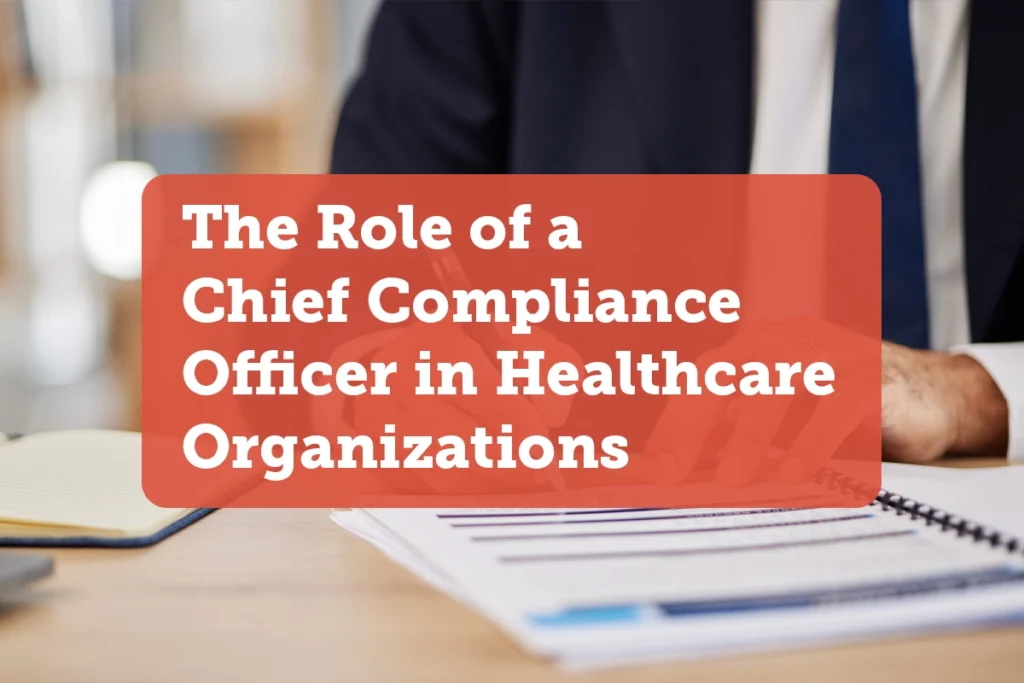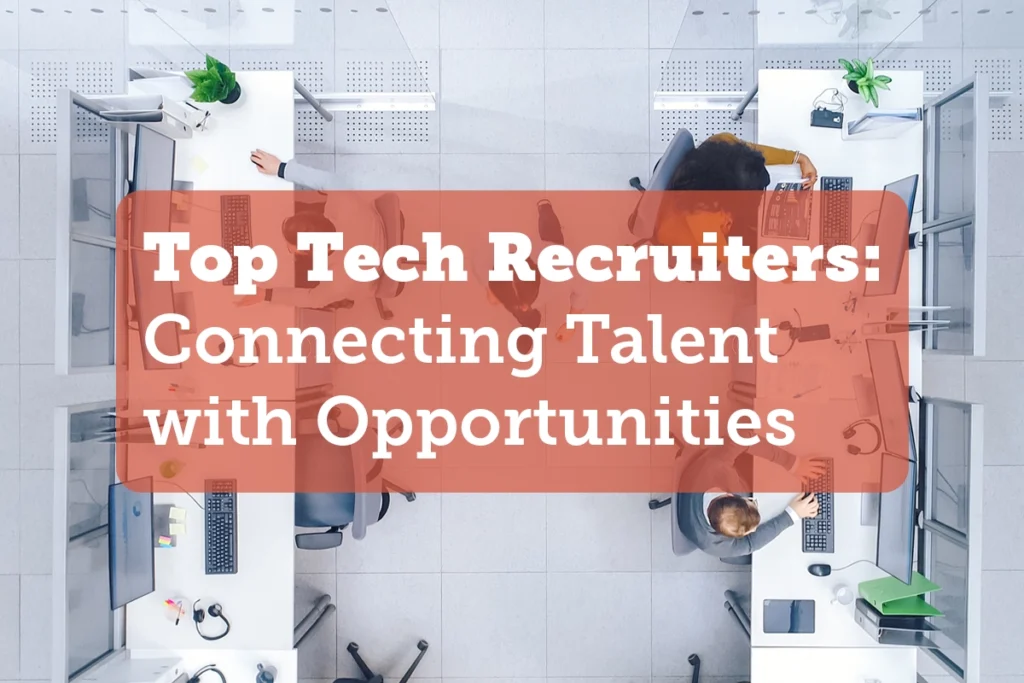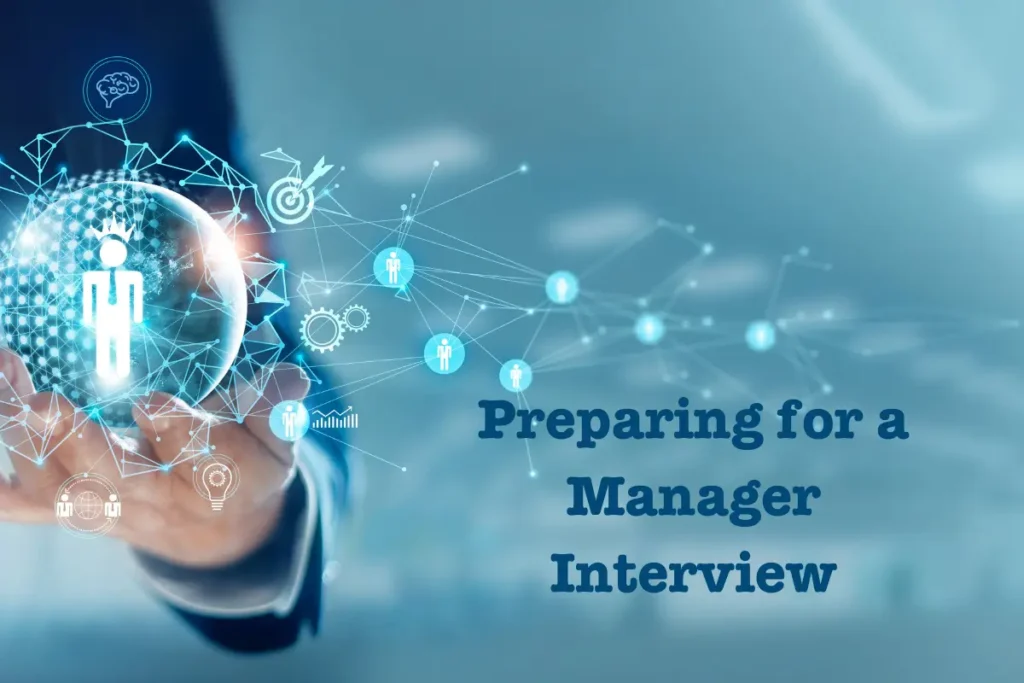The Role of a Chief Compliance Officer in Healthcare Organizations
In today’s ever-changing healthcare landscape, the role of a Chief Compliance Officer (CCO) has become increasingly important for healthcare organizations. The CCO is tasked with ensuring that the organization complies with all relevant laws, regulations, and industry standards. This crucial position plays a vital role in maintaining the integrity, transparency, and ethical standards of healthcare organizations.

Understanding the Position: Chief Compliance Officer
The Chief Compliance Officer is a senior executive responsible for overseeing and managing all aspects of compliance within a healthcare organization. They serve as the organization’s internal advocate for compliance and ethics, ensuring that policies and procedures are in place to prevent and detect non-compliance issues.
One of the primary goals of the CCO is to establish a culture of compliance within the organization, fostering an environment where ethical behavior and legal adherence are prioritized.
Creating this culture involves more than just implementing policies and procedures. The Chief Compliance Officer must also lead by example, demonstrating their commitment to compliance through their actions and decisions. They must effectively communicate the importance of compliance to all employees, from the top executives to front-line staff.
Key Responsibilities of a Chief Compliance Officer
The responsibilities of a CCO are wide-ranging and cover various aspects of healthcare compliance. These include:
Developing and implementing compliance programs:
The CCO is responsible for establishing and maintaining comprehensive compliance programs tailored to the organization’s specific needs. This involves conducting thorough risk assessments to identify potential compliance vulnerabilities and developing strategies to address them.
Regular auditing and monitoring:
The CCO conducts regular audits and assessments to identify potential compliance risks and takes proactive measures to mitigate them. This includes reviewing internal controls, conducting interviews with key personnel, and analyzing data to ensure ongoing compliance.
Training and education:
The CCO ensures that all employees are educated about compliance policies and regulations, providing ongoing training to promote awareness and understanding throughout the organization. This includes developing training materials, conducting workshops, and implementing e-learning modules.
Investigating and resolving compliance issues:
If a compliance violation occurs, the CCO investigates the issue, determines the root cause, and implements corrective actions to prevent future occurrences. This involves conducting interviews, reviewing documentation, and collaborating with legal and human resources departments to address the issue effectively.
Required Skills and Qualifications
To excel in this role, a Chief Compliance Officer must have a diverse skill set. Strong leadership, communication, and problem-solving skills are essential. The CCO should also possess a deep understanding of healthcare regulations and compliance requirements, along with the ability to interpret and apply them effectively in the organization.
Furthermore, the CCO must stay updated with emerging compliance issues and trends, as healthcare regulations are dynamic and subject to frequent changes. The ability to adapt to these changes and adjust compliance efforts accordingly is crucial.
The Chief Compliance Officer must also be a persuasive and influential leader, capable of gaining support and buy-in from stakeholders at all levels of the organization. This requires excellent interpersonal skills, the ability to build relationships, and the capacity to influence decision-making processes.
In addition to these skills, the CCO should possess a high level of integrity and ethical standards. They must be committed to upholding the organization’s values and ensuring that compliance is not compromised in any way.
The Importance of Compliance in Healthcare
The healthcare industry has always been heavily regulated. Regardless, regulations in the industry have still been increasing. The increased focus on ethical behavior has given compliance officers prestige and importance (Forbes 2017).
Compliance in healthcare is of paramount importance for several reasons. Primarily, it ensures the safety and well-being of patients. By adhering to regulations and industry best practices, healthcare organizations can provide high-quality care and protect patients from potential harm.
Secondly, compliance plays a crucial role in protecting healthcare organizations from legal and financial risks. Non-compliance can result in severe penalties, legal consequences, and damage to the organization’s reputation.
Ensuring Adherence to Healthcare Regulations
Healthcare regulations exist to safeguard the interests of patients and ensure the delivery of safe and effective care. The Chief Compliance Officer (CCO) works closely with various departments to develop protocols and procedures that align with these regulations, ensuring the organization is in full compliance.
For example, the CCO collaborates with the legal team to interpret and implement complex regulatory requirements. This involves conducting thorough research and analysis to ensure that the organization understands and follows all applicable laws and guidelines.
Furthermore, the CCO works closely with the clinical staff to ensure that healthcare providers are aware of and trained in the latest compliance standards. This includes conducting regular educational sessions and providing resources to keep the staff up to date with any changes in regulations.
By strictly adhering to healthcare regulations, the CCO helps minimize the risk of incidents that can jeopardize patient health and the organization’s reputation. This commitment to compliance demonstrates the organization’s dedication to the highest standards of care.
Mitigating Risks and Legal Issues
In addition to adhering to regulations, the CCO focuses on identifying and mitigating potential risks. By implementing thorough risk assessment processes, the CCO can proactively identify areas of vulnerability and develop strategies to address them.
For instance, the CCO collaborates with the IT department to ensure that patient data is securely stored and protected from unauthorized access. This involves implementing robust cybersecurity measures, such as encryption and regular system audits, to safeguard sensitive information.
Moreover, the CCO works closely with the finance department to monitor financial transactions and detect any signs of fraud or non-compliance. By conducting regular audits and implementing internal controls, the CCO helps prevent financial misconduct and ensures the organization’s financial integrity.
By anticipating and addressing compliance issues before they escalate, the CCO helps healthcare organizations avoid legal disputes and financial penalties. This proactive approach helps protect the organization’s resources and preserves its reputation within the industry.
The CCO’s Role in Policy Development and Implementation
Developing and implementing effective compliance policies is a critical aspect of the Chief Compliance Officer’s role. These policies serve as guidelines that employees must follow to ensure ethical conduct and legal compliance within the organization.
As the steward of compliance within the organization, the Chief Compliance Officer (CCO) plays a pivotal role in shaping the ethical framework and regulatory landscape that governs the company’s operations. Beyond just creating policies, the CCO must also embody a culture of integrity and transparency that permeates throughout the organization.
Formulating Compliance Policies
The CCO works closely with legal, regulatory, and risk management teams to develop comprehensive compliance policies. These policies outline expectations for employees, establish protocols for reporting and investigating violations, and provide guidance on ethical decision-making.
Moreover, the CCO must navigate the intricate web of laws and regulations that apply to the organization, ensuring that the compliance policies not only meet legal requirements but also align with the company’s values and strategic objectives. By fostering a culture of compliance from the top down, the CCO sets the tone for ethical behavior and accountability at all levels.
To create effective policies, the CCO must consider the unique needs and challenges of the organization, as well as stay informed about changes in healthcare regulations and industry best practices.
Implementing and Monitoring Compliance Measures
Once the compliance policies are in place, the CCO oversees their implementation and monitors their effectiveness. This involves ensuring that employees receive appropriate training and resources to understand and comply with the policies.
Through proactive monitoring and continuous improvement, the CCO can identify trends, anticipate risks, and implement preventive measures to mitigate compliance issues before they escalate. By fostering a culture of compliance and accountability, the CCO instills trust in stakeholders and upholds the organization’s reputation as a responsible corporate citizen.
The CCO establishes mechanisms for ongoing monitoring, such as regular internal audits and reporting systems. These measures help identify potential compliance breaches and enable the CCO to take prompt corrective actions.
The CCO’s Interaction with Other Departments
The Chief Compliance Officer collaborates closely with various departments within a healthcare organization to ensure compliance and promote a culture of integrity.
Collaborating with Human Resources
Human Resources (HR) plays a significant role in promoting and maintaining compliance throughout an organization. The CCO works with HR to develop effective training programs, disseminate compliance-related information, and ensure that hiring practices align with legal and ethical requirements.
By partnering with HR, the CCO ensures that employees are well-informed about compliance expectations, promoting consistent adherence to policies and procedures.
Working with Legal and Risk Management Teams
The collaboration between the CCO and the legal and risk management teams is crucial in addressing compliance issues and managing potential risks. Together, they assess the impact of legal and regulatory changes, develop appropriate responses, and establish strategies to mitigate risks.
By working together, these teams enable the organization to navigate complex legal and regulatory landscapes while maintaining a proactive approach to compliance.
The Impact of a CCO on Patient Care and Safety
A Chief Compliance Officer can greatly contribute to the improvement of patient care and safety within a healthcare organization.
Promoting Ethical Practices
The CCO plays a vital role in instilling and reinforcing the organization’s ethical values. By cultivating a culture of integrity and accountability, the CCO helps ensure that ethical considerations are prioritized at every level of the organization.
When compliance with regulations becomes part of the organizational DNA, it is easier to identify and address deviations from ethical standards, leading to improved patient care and safety.
Ensuring Patient Privacy and Data Security
In an era where data breaches are a growing concern, the CCO plays a critical role in safeguarding patient privacy and data security. By implementing robust data protection protocols and monitoring compliance with privacy regulations, the CCO helps maintain patient trust and confidence in the organization.
Through regular training and reinforcement of data security best practices, the CCO ensures that all employees understand the importance of protecting patient information.
The role of a Chief Compliance Officer in a healthcare organization is crucial for ensuring ethical conduct, legal compliance, and patient safety. By collaborating with various departments, developing effective policies, and promoting a culture of compliance, the CCO contributes significantly to the overall success and reputation of the organization. With their expertise and leadership, the CCO helps healthcare organizations navigate complex regulations, mitigate risks, and prioritize patient care and safety.
Join the Ranks of Compliance Leadership with Hunter Recruiting
If you’re inspired by the critical role of a Chief Compliance Officer and are ready to take on the challenge of ensuring ethical conduct, legal compliance, and patient safety, Hunter Recruiting can guide you to your next career opportunity. As a trusted staffing agency to Fortune 500 companies and leaders in healthcare, we specialize in placing professionals like you in jobs that are not just meaningful, but also with employers at the forefront of innovation. Find your next job with us and become a part of an organization where your skills can make a significant impact.











